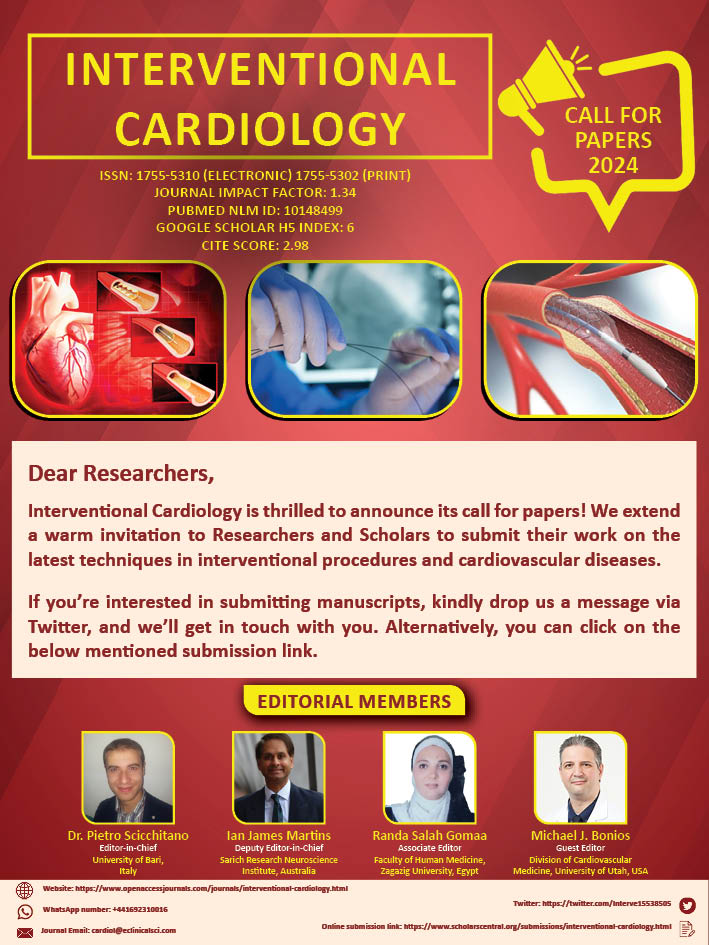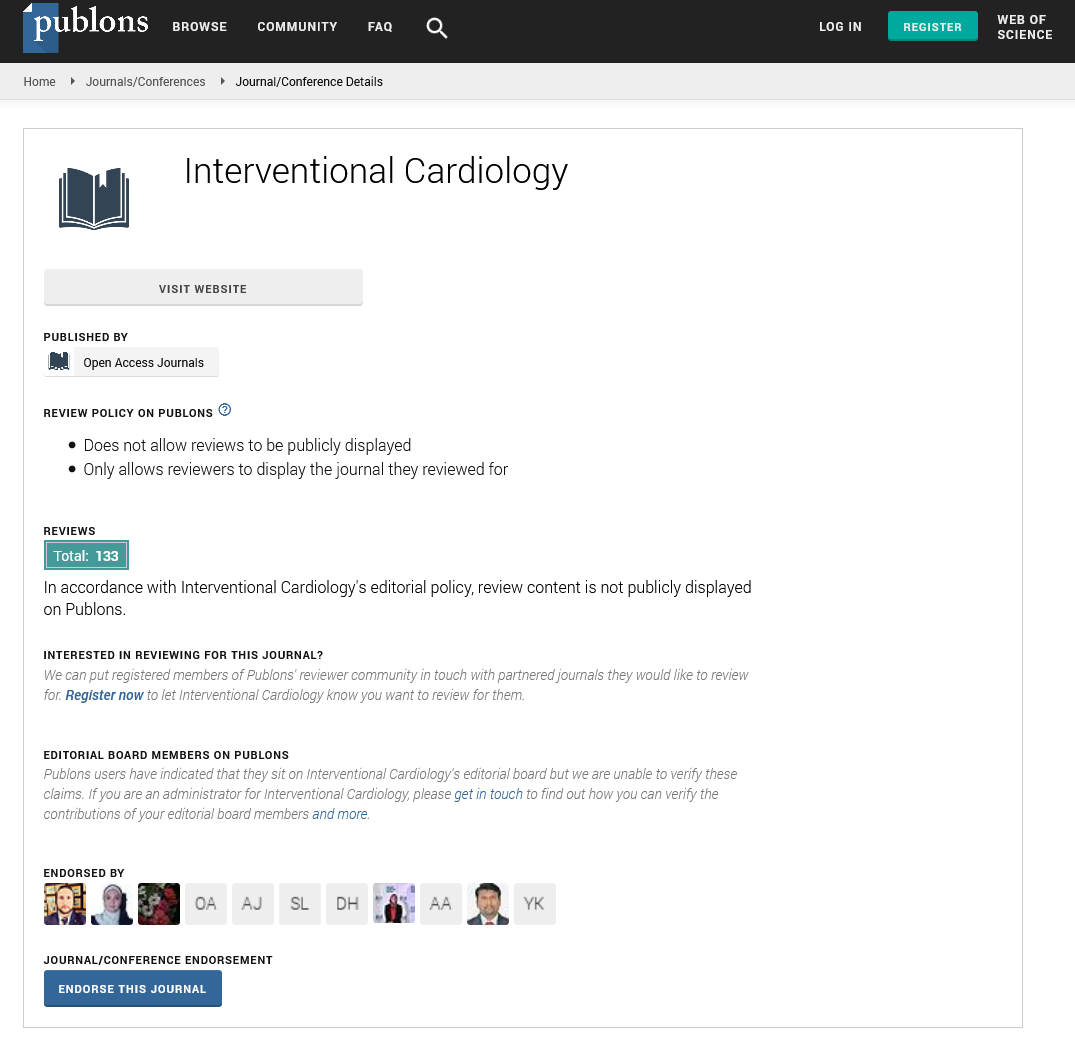Editorial - Interventional Cardiology (2020) Volume 12, Issue 6
How to get rid of heart attack?
Kalathingathodika Sajeer*Department of Cardiology, Government Medical College, Kozhikode, Kerala, India
- Corresponding Author:
- Dr. Kalathingathodika Sajeer
Department of Cardiology
Government Medical College
Kozhikode, Kerala, India
E-mail: drsajeerkt@gmail.com
Received date: October 01, 2020 Accepted date: October 15, 2020 Published date: October 22, 2020
Abstract
A coronary heart attack happens while the glide of blood to the coronary heart is blocked. The blockage is most customarily a build-up of fat, cholesterol and different substances, which shape a plaque inside the arteries that, feed the coronary heart (coronary arteries). Sometimes, a plaque can rupture and shape a clot that blocks blood glide. It commonly happens when a blood clot blocks blood float to the heart. Without blood, tissue loses oxygen and dies.
Symptoms
Common symptoms and signs before heart attack:
• Shortness of breath
• Cold sweat
• Fatigue
• Sudden dizziness
What Does A Mini Heart Attack Feel Like?
Chest pain or a feeling of strain or squeezing inside the middle of the chest. This soreness might also additionally ultimate numerous minutes: It might also come and go. Pain can be skilled in the throat. Symptoms can be stressed with indigestion or gastroesophageal reflux disease (GERD). Arterial high blood pressure (AH) is the important thing dominant threat aspect for CVDs. The sicknesses attributed to high blood pressure include: stroke, coronary heart failure, ischemic coronary heart disease, hypertensive retinopathy, renal failure [1].
Generally heart attack occurs when one or more coronary arteries become blocked. Over time, a build-up of fatty deposits, including cholesterol, form substances called plaques, which can narrow the arteries (atherosclerosis). This condition called coronary artery disease.
We can get rid of heart attack by Chewing one uncoated 325-milligram aspirin. It may not stop the heart attack, but it could lessen the damage by thinning the blood and breaking up clots. Take nitroglycerine for chest pain if you have a prescription.
How Can We Manage to Lower the Risk of Heart Diseases?
Control your blood pressure: High blood strain is a primary threat component for coronary heart disease. It is vital to get your blood strain checked regularly-at least once a year for maximum adults, and extra regularly when you have excessive blood strain. Take steps, which include life-style changes, to prevent or manipulate excessive blood strain, exercise regularly, eat healthy food, reduce sodium in your food, limit the alcohol these things will surely helpful in controlling the blood pressure However, the influence of exercise-related behaviors on the effects of blood pressure control and the management factors that affect exercise behaviors remain inconclusive [2].
Keep your cholesterol under control: Higher amount of cholesterol can block your arteries and which leads to coronary artery disease and heart attack. Over weight and obesity is also a major factor of increasing the risk of heart diseases, if we maintain to eat a healthy diet then we can be away from heart diseases.
Keep doing exercise regularly: Exercise keeps your heart healthy and which improves the circulation. It can also help lower cholesterol and blood pressure and also by doing regular exercise we can maintain a healthy weight.
Don’t Smoke: Cigarette smoking is one of the major issues which increase your blood pressure and sometimes it leads to cancer and stroke. If you are addicted for cigarette smoking, try to reduce it and gradually stop smoking which can reduce the heart diseases and keeps you healthy.
References
- Znyk M, Polańska K, Bąk-Romaniszyn L, et al. Correlates of Blood Pressure and Cholesterol Level Testing Among a Socially-Disadvantaged Population in Poland. Int J Environ Res Public Health. 17(6): 2123 (2020).
- Zhang C, Zhang Y, Lin H, et al. Blood pressure control in hypertensive patients and its relation with exercise and exercise-related behaviors. Medicine. 99(8): e19269 (2020).

